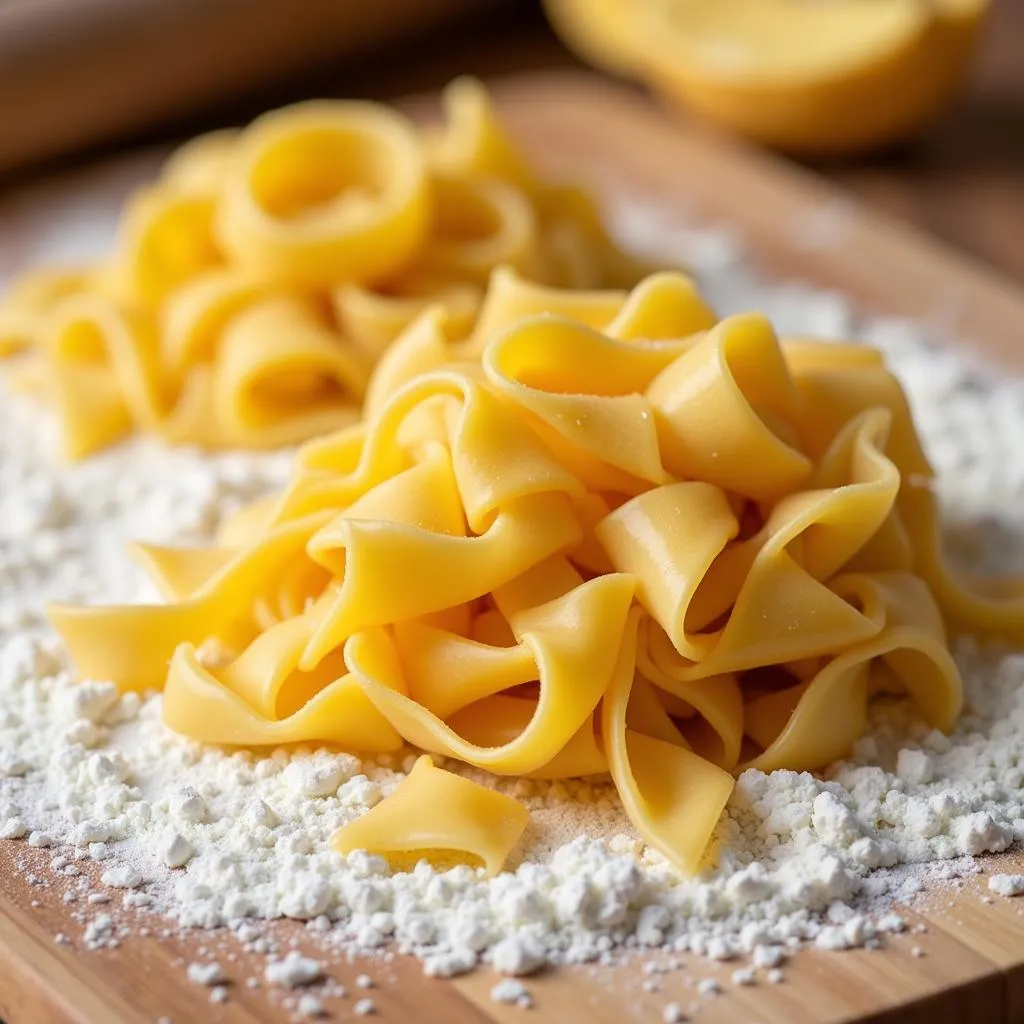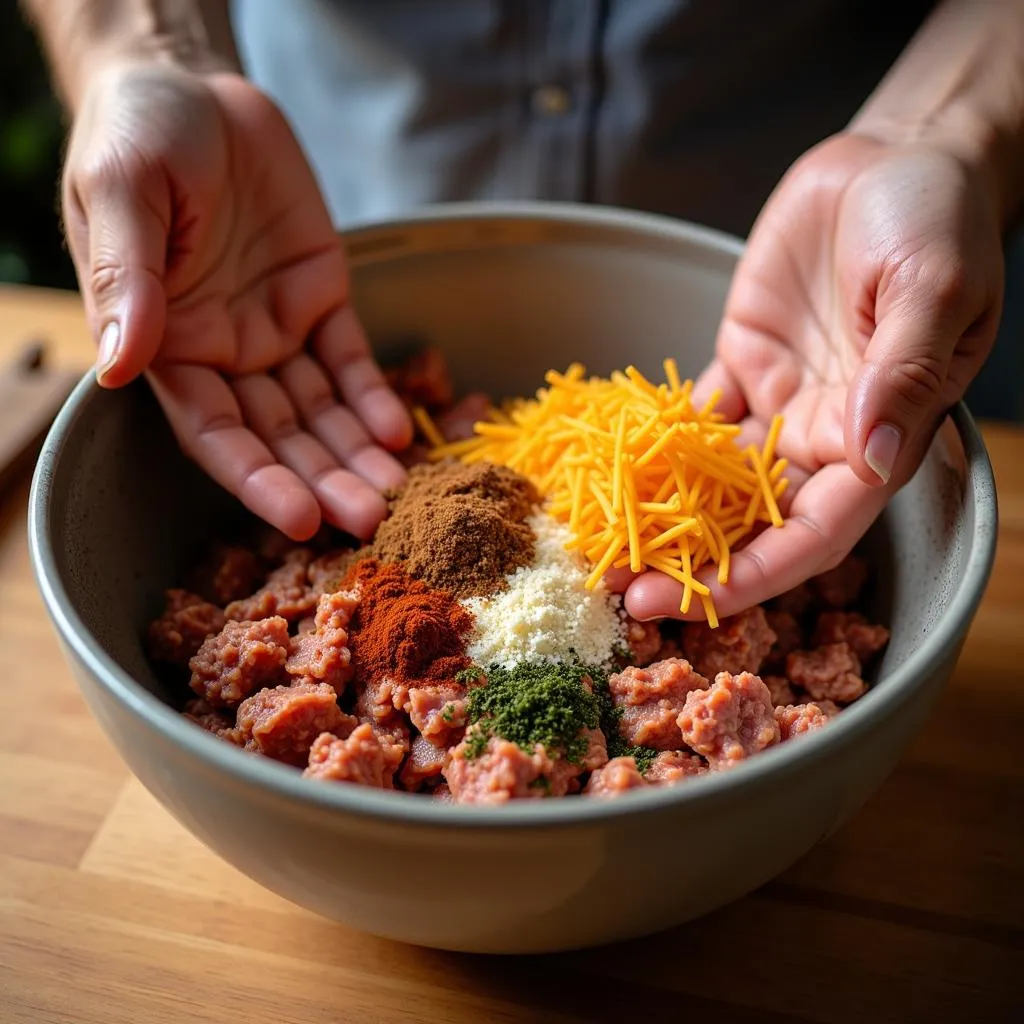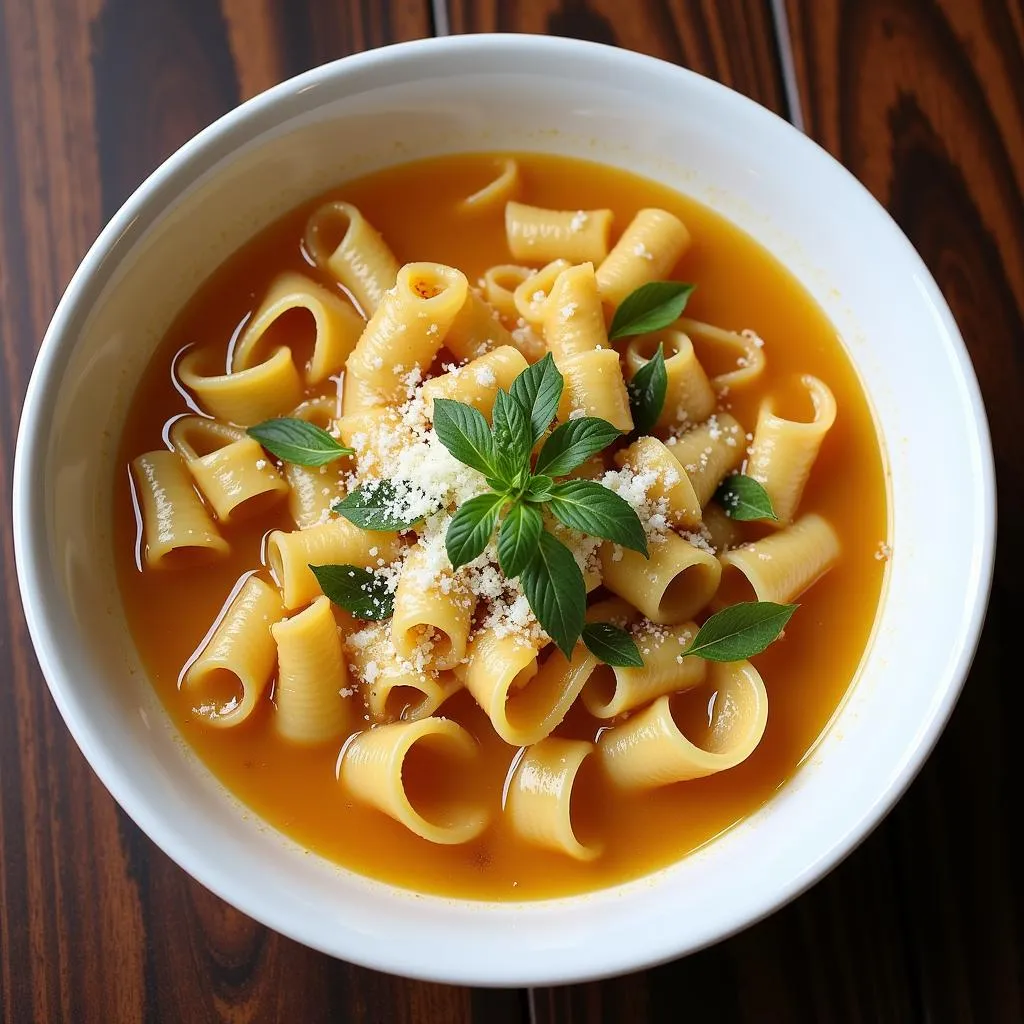Capelletti, often referred to as the “little hat” pasta due to its distinctive shape, is a cherished culinary treasure from the Emilia-Romagna and Lombardy regions of Italy. While similar in appearance to tortellini, capelletti boasts unique characteristics that set it apart in the world of pasta.
 Close-up view of capelletti pasta
Close-up view of capelletti pasta
Unveiling the History and Origins of Capelletti
Capelletti’s roots can be traced back to the Middle Ages, with mentions of this delicate pasta appearing in 12th-century literature. Legend has it that the shape of capelletti was inspired by the hats worn by local noblemen or, as some romantic tales suggest, by the puckered lips of Venus, the goddess of love. Regardless of its true origin, capelletti has secured its place as a symbol of Italian culinary tradition and heritage.
The Making of Capelletti: A Labor of Love
Unlike factory-produced pasta varieties, capelletti is typically handmade, often by groups of women known as “sfogline” who have passed down the art through generations.
The Dough: Simple Yet Crucial
The dough, traditionally made with just flour and eggs, is carefully kneaded until it achieves a smooth, elastic texture. This process can take up to 30 minutes, reflecting the dedication and care that goes into every element of capelletti.
The Filling: A Symphony of Flavors
While fillings vary across regions and families, the most traditional capelletti recipes feature a rich blend of meats, cheeses, and aromatic spices. Think slow-cooked beef or pork, grated Parmigiano-Reggiano, nutmeg, and a touch of lemon zest.
 Hands mixing ingredients for capelletti filling
Hands mixing ingredients for capelletti filling
The Shape: Tiny Hats with a Story
Once the filling is prepared, small squares of dough are meticulously cut, a dollop of filling is placed in the center, and then the corners are carefully pinched together to form the distinctive “hat” shape.
Serving Up Tradition: How to Enjoy Capelletti
While the most classic way to enjoy capelletti is in a warm, flavorful broth, usually chicken or beef, this versatile pasta lends itself to a variety of sauces and preparations.
- Brodo: A clear, flavorful broth, often served with a sprinkle of grated Parmigiano-Reggiano.
- Cream Sauces: Rich and indulgent, cream-based sauces complement the delicate flavors of capelletti.
- Tomato-Based Sauces: A lighter option, tomato sauces provide a touch of acidity that cuts through the richness of the filling.
 Bowl of capelletti served in broth
Bowl of capelletti served in broth
Capelletti: Beyond the Plate
More than just a delicious dish, capelletti represents the heart of Italian cuisine. It’s a testament to the importance of family tradition, the joy of gathering around the table, and the celebration of simple, high-quality ingredients.





